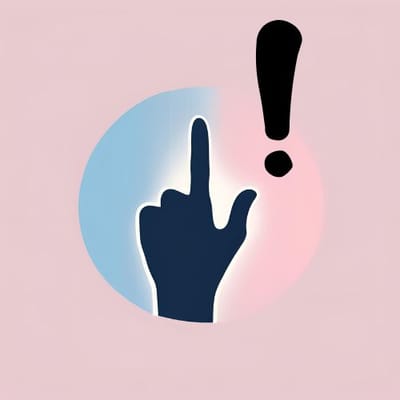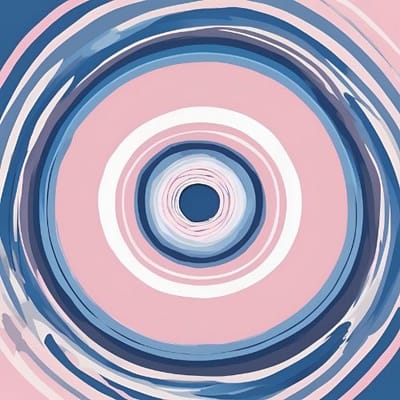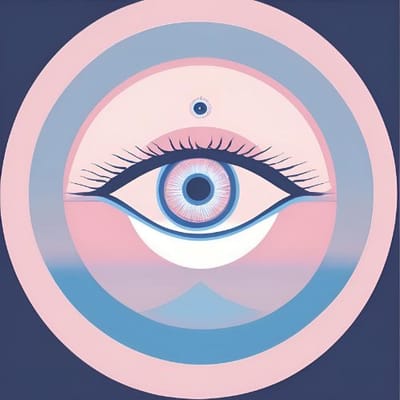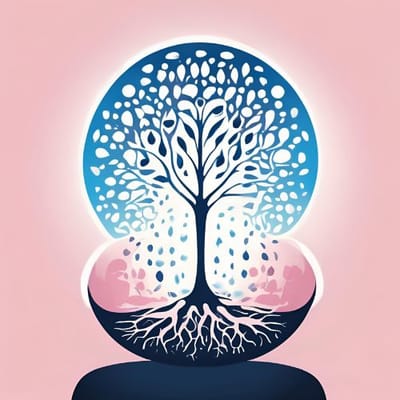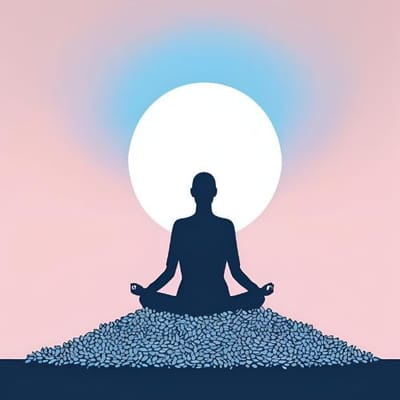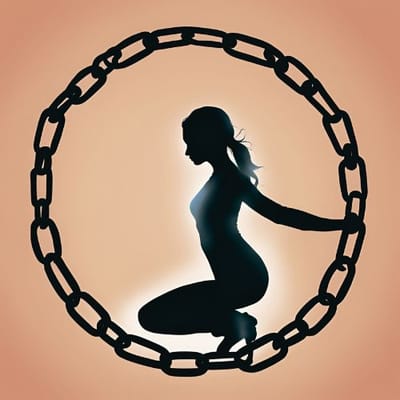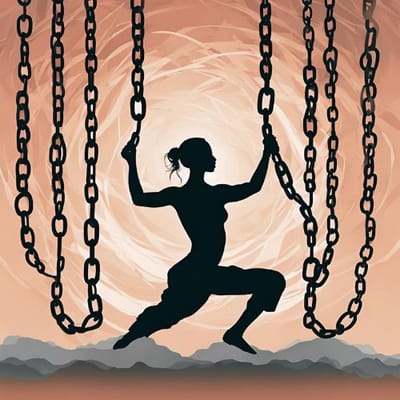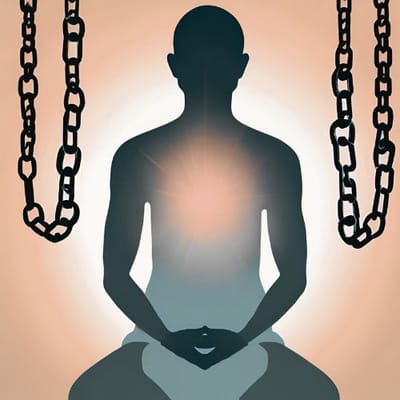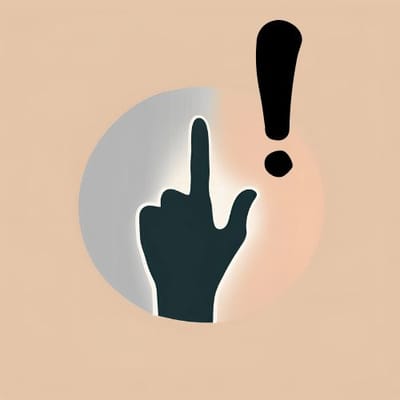Buddhist
Self-Help for OCD
The Psychology of the Cheng Wei Shi Lun
INTRODUCTION
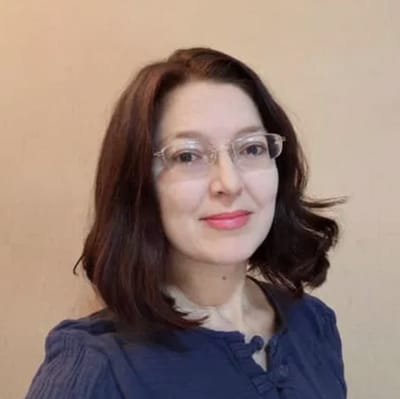
This website will introduce you to the teachings of the Cheng Wei Shi Lun (hereafter: CWSL), a key scripture of Yogacara-Buddhism which was written in the sixth century by the Chinese monk Xuanzang. The CWSL is something like a psychological manual; it explains how the human mind works and how an interplay of eight consciousnesses creates our individual version of 'reality.' For some people, it is a pleasant experience - for people struggling with OCD, it can be a nightmare. The good news is: as 'reality' is just a product of our own mind, we can actually learn to create a more positive reality for ourselves!
I recommend that you follow the three steps as indicated in the menu. Get yourself a cup of tea and begin by reading the articles in Step 1, which will give you an overview of the teachings of the CWSL. In Step 2, we look at how the CWSL would explain obsessive-compulsive disorder: how does an obsession arise and what are the mental processes involved? Then you are well-prepared to start with the practical part: Step 3, which contains fourteen guided meditations designed specifically for people with OCD that will help you work on your anxiety.
Scope & Precautions
The program can be helpful to you if you:
- are currently practicing ERP (Exposure and Response Prevention), but find it very difficult because you feel overwhelmed by anxiety (talk to your therapist if you want to try the self-help program in this context)
- have thought about trying ERP, but are hesitating because you are not sure if you can face your fear as is required by this method
- currently do not have access to psychotherapy or you only have mild OCD, but you want to do something to alleviate OCD symptoms

Step 1: Buddhist Psychology
The following articles are an essential part of the self-help program; before you dive into them, please spare a few minutes to find out here how they should be read. Yes, reading can be meditation!
Read MoreWhat exactly do we mean when we say 'I' - and is our perception of Self really accurate? Buddhism says that we do not possess an 'I' as we usually define it.
Read MoreThe eight consciousnesses are responsible for our distorted perception of reality - but this means that we can also use them as a tool.
Read MoreThe Cheng Wei Shi Lun puts it in a nutshell: There is no objective reality - or rather, we cannot see it. Instead, we create a subjective reality at every moment.
Read MoreSeeds are created through experience; they are potentialities and are the basis for the reality we create for ourselves
Read MoreImpermanence is a basic credo of Buddhism, and the key to breaking free from OCD; only because of impermanence may we develop ourselves.
Read MoreStep 2: Buddhist view on OCD
Approximately 2% of the people worldwide are affected by OCD; it is an anxiety disorder which manifests itself in the form of obsessive thoughts, images and compulsive behavior.
Read MoreNo, you do not 'have' OCD. You just experience a series of successive OCD moments. They arise from an interplay of seeds, emotional disturbances, and other factors.
Read MoreRather than treating a certain conditions, Buddhist psychology works by mindfully treating moments as they arise, in order to prevent the arising of more 'OCD seeds'.
Read MorePlease read this chapter carefully before you start the Self-Help Program; it contains important safety information as well as supplemental material which you can download.
Read MoreStep 3: OCD Self-Help Exercises
My Story
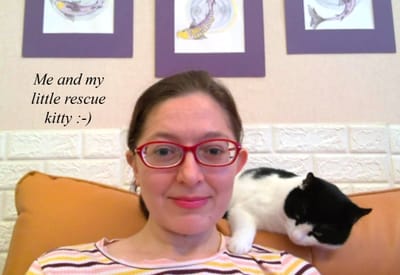
I first recall having an OCD episode at the age of 10, when my grandma died. I remember that suddenly there was this strange thought in my head: could it be that grandma might not have gotten terminally ill if only I had worn a different hairband? Though my Mum reassured me that grandma's illness had nothing to do with anything I did, and I knew that the whole idea was absurd, the thoughts kept coming back. I started compulsively pressing the light switch to make them go away.
As I grew older, the content of the obsessive thoughts varied, and also the compulsions. Sometimes I had to repeatedly press the light switch, or take a fixed number of steps back, to 'neutralize' something, or double-triple-quadruple check the stove before I go out...but for a long time, though this was annoying, it did not reach a degree where it would have really kept me from living my life. The good thing was that at school or work, my brain was kept so busy that the OCD was suppressed, and so it mostly affected me only in my free-time, when no one would notice it. By the time, I knew that what I was experiencing was called OCD, but as it was only mild to moderate, I didn't bother to get therapy at that point.
In 2017, I moved to China, to follow my dream and study and practice Yogacara-Buddhism in Xi'an. I have had the habit of meditating ever since I was a child (and in retrospect, I believe that this may have been an important factor preventing my OCD from becoming worse for so many years!), and now I wanted to intensify my practice. I discovered the Cheng Wei Shi Lun, a Buddhist psychology manual written 1400 years ago by the monk Xuanzang, and I was fascinated by it.
After living in Xi'an for about two years, however, a traumatic incident set my OCD on fire. At that time, I had an apartment in a large compound consisting of a good 20 high-rise buildings. In the greenery around each building, multiple ventilation shafts were hidden. For a long time, I had been totally unaware that several of these shafts were completely unsecured; until my cat fell into one of them. He fell a good 33 feet and it took me one day and one night to find him and get him out again. A few months later, a stray kitten fell into yet another unsecured shaft, this one even deeper, a good 100 feet. The baby cat was lying on an intermediate level, and me and several neighbors tried everything to get it out, but every rescue attempt failed. One by one, the neighbors gave up, some weeping, until only I and a single neighbor remained (who told me afterwards that she, too, had actually given up hope, she stayed only out of pity for me!). Knowing that the kitten's life now depended on me, and all the time hearing its desperate cries, was utter horror. However, after a total of 48 hours and with the help of an animal rescue organization, we did manage to save the little guy!
But the experience left its mark. I should mention at this point that these shafts are not only very deep, but also wide, and during the cat rescue operation I just in time grabbed a child by the collar to prevent him from falling in! Me and another neighbor took a tour of the facility afterwards and we discovered that out of app. 125 shafts 13 were unsecured. The property management did nothing, and so we bought wire mesh and cable ties and secured the shafts at least provisionally.
However, as a result, I developed a severe 'checking OCD'. Knowing that these shafts were life-threatening for children and animals and that the property management was not doing anything about it, I felt an enormous responsibility weighing on me and I began to make more and more frequent inspections to see if our wire mesh was still in place. This became increasingly time-consuming and in addition I also had to check on every 'meow' I heard, i. e. I had to go and follow it until I found out where it was coming from and saw the cat sitting somewhere safe and sound. But as there were a lot of stray cats, there was of course a lot of meowing! And so, it soon was hardly possible for me anymore to go from A to B without being held up, and of course every time I had to step out the door, I was in a state of extreme emotional stress.
At this point, I decided that it was time to do something about my OCD. However, in Xi`an, I did not find any therapeutic offers for such problems, and video therapy, which was available in the USA, was far too expensive for me. So, I got myself a few books and learned about ERP. The concept made sense to me, and so I gave myself the task of sitting next to a ventilation shaft without looking into it and just bearing with my anxiety. However - maybe because I was not doing it right? - the whole thing backfired and a few weeks into the practice, my stress levels were so high that I was no longer able to enjoy my morning coffee if I knew that the ERP task was waiting for me. ERP itself became an obsession: I was forced to go out and sit next to a shaft first thing in the morning, and only after coming back was I able to have my coffee, and go to work. I realized that something was not going as planned; I felt worse than before.
Then, one day while out obsessively 'ERPing', I heard a meow. As usual, my anxiety level skyrocketed. But then, I heard the voice of a little boy. He said to his friend cheerfully: "Meow-meow-meow, there's a kitty meowing!" At that moment, the scales fell from my eyes. "Wow", I thought. "We both heard the same thing. And yet we are experiencing completely different realities - just like the Cheng Wei Shi Lun describes!" In the little boy's reality, there was a cat meowing. Nothing more. Whereas in my reality, the cat was starring in a horror movie. I was living in a distorted reality, and I realized that the Cheng Wei Shi Lun was the key to understanding, and, as I hoped, to overcoming it. That was the start of my dissertation project.
In the following, I intensely studied the Cheng Wei Shi Lun and a lot of secondary literature, and gradually developed the self-help program on this website. I found that adding the elements of 'study', 'kusala' and 'lovingkindness' to ERP practice was very beneficial in my case. Also, I found that doing ERP in the form of visualizations during meditation before trying it in 'real life' worked much better for me. By now, I feel good again. I am no longer doing inspection rounds, and I am able to go wherever I have to go to pick up a parcel, bring the trash out, or go to work, without being held up by a meow. And, most importantly, I can drink my morning coffee in peace! :-) What I am not able to do, though, is truly enjoy going for a walk around the compound; it would not feel relaxing, because the memories are still there. However, that does not bother me, because anyway I prefer going for walks in the nearby botanical garden and the 'therapy goal' I had set for myself was to no longer be bothered when I have to do an everyday-life task outside, like going out to buy groceries, walking over to the compound management, or else. And this goal has been achieved.
In 2023 I returned to Germany and in 2024 successfully took the licence examination at the Munich Public Health Authority to become registered as an alternative practitioner in the field of psychotherapy. I hope that my self-help programme can help other OCD sufferers to alleviate their symptoms and take back their lives.
...By the way, for those of you who wonder: the baby cat we rescued in China has found a loving new home and has grown into a big, fluffy fur-ball, enjoying his life with a lot of cuddling, playing and sleeping in the sun :-)
HAPPY END
Contact & Legal Notice
- Schillerstraße 2, 84547 Emmerting-Unteremmerting, Bavaria, Germany
Website Owner: Dipl. & M. A. Kerstin Han https://www.linkedin.com/in/kerstin-han-111b4b25b/ Sources: Graphics created by Kerstin Han, using CanvaPro Stock images by Site123 (paid subscription) Videos & Audios created by Kerstin Han Background Music by Frametraxx
